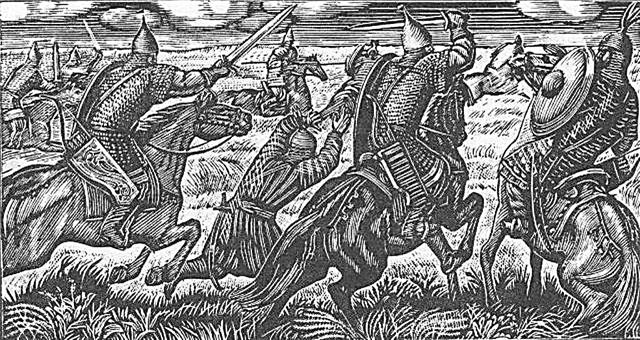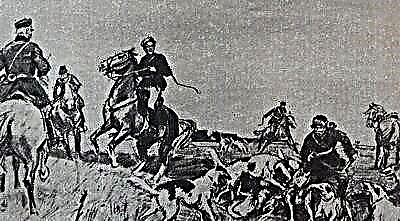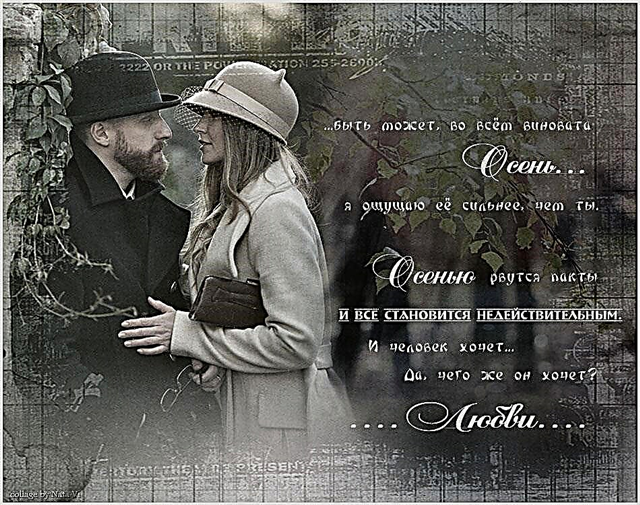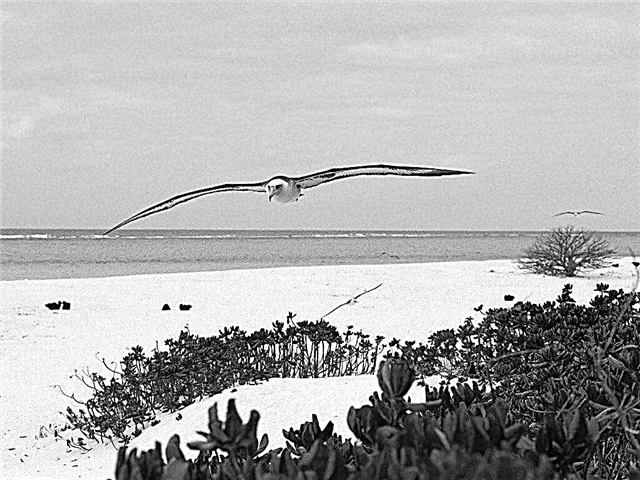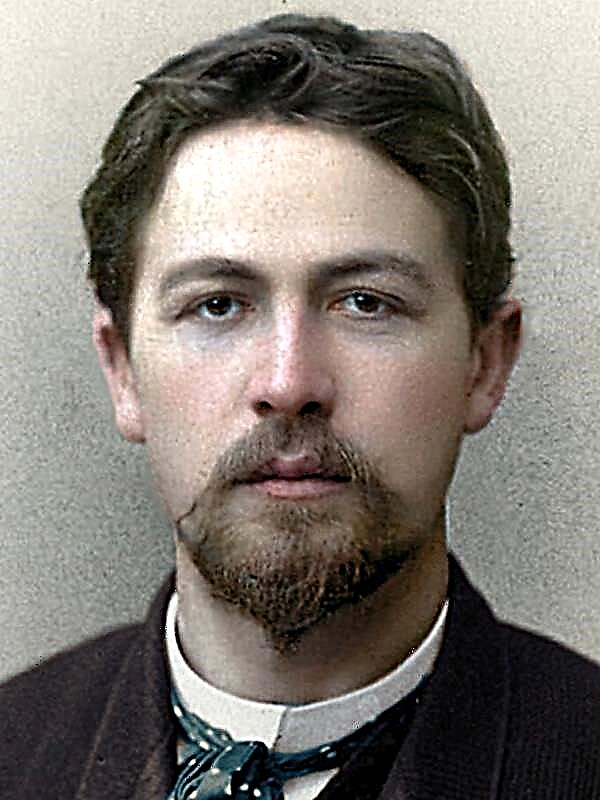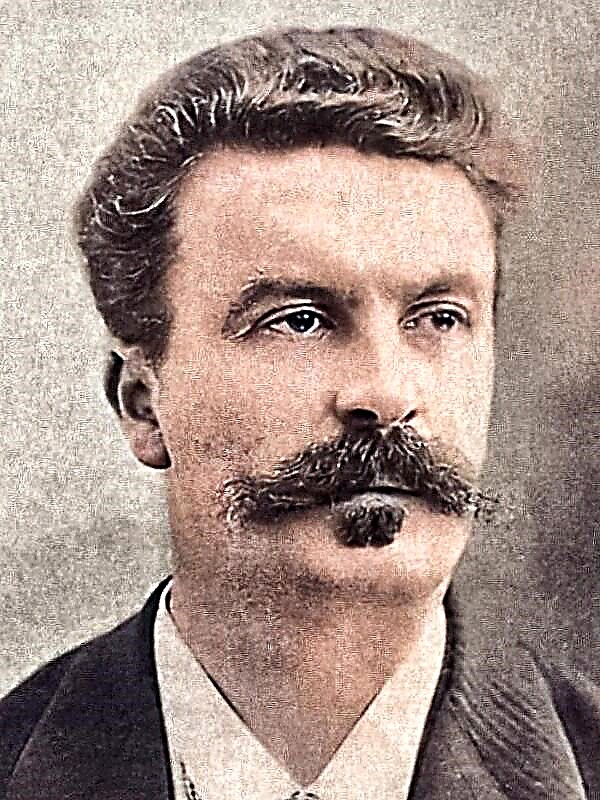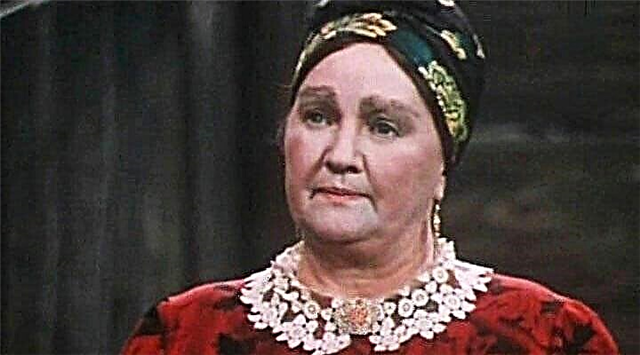A young girl with a sonorous name Apollinaria Vikhrova (in fact, everyone calls her Fields) arrives after school in Moscow to study. Her mother remained there, on the Yenga, in the Pashutinsky forestry, but her father is a metropolitan professor, a specialist in forestry. Only Paul doesn’t want to see him: every now and then whip Ivan Vikhrov in forest logs because he constantly insists on the need for proper forest management, on the inadmissibility of clear-cutting. It blocks the forest from its rightful owner - the Russian people. Such theories contradict the interests of socialist construction. Numerous harsh articles hint at the political background of Vikhrov's scientific views, and Fields, a convinced Komsomol member, hates his father in absentia as an enemy of new life. By the way, loud articles have one author. His last name is Grazian.
Once, Graziansky and Vikhrov studied together at the Forest Institute and were even inseparable comrades, despite the difference in social status: Vikhrov was a peasant son, Grazian came from a wealthy family of a professor at the St. Petersburg Theological Academy. Graziansky's brilliant scientific career began with the trampling of the prominent forest theorist Tuliakov, the Vikhrov teacher, and the feud with Vikhrov himself continued. After each major work by Vikhrov, the forest community now expects a Grazian article, although some people trust that the gracious abusive masterpieces do not contribute to great science.
So, Fields comes to Moscow and stops at a friend and fellow countrywoman Vari Chernetsova. He walks around Moscow, comes to his father - to give him an honest Komsomol judgment about people of this sort, but only his father’s sister, his aunt Taisiya Matveevna, is caught.
... That same night, German planes dropped their first bombs on sleeping Soviet cities.
In the light of unfavorable reports from the front, Grazian's accusations seem to Paul particularly sinister. Especially when you personally meet in a bomb shelter (they are housemates), Graziansky adds completely murderous details to her father’s biography: Vikhrov received an allowance of 25 rubles from an unknown person throughout his studies. In the years of the impoverishment of the proletariat, this benefactor was certainly not a worker - the conclusion from here is clear. Fears of horror, eager to go to the district committee to tell everything. Varya suggests that she instead go to Vikhrov's introductory lecture.
After listening to an inspired story about the fate of the Russian forest (“The Fate of the Russian Forest” is also called one of the fundamental works of the professor), Fields is tired of victory and the triumph of purity. Now she is not ashamed to face the warring soldiers, including Rodion, her former classmate, friend and lover. Upon returning home, she learns that Varia is sent behind enemy lines. “You have a Komsomol ticket under your pillow ... think about it more often - this will teach you to do great things,” a friend instructs Apollinaria in farewell.
After spending Varia, Fields goes to the district committee to ask for the front. She also has another cherished desire - to visit Red Square on the October holiday.
From time to time, Paulie has meetings with her aunt Taisa, from whom the life story of her parents is gradually revealed. At the end of the Forest Institute, her father worked at home, in the Pashutinsky forestry. The economy under him became exemplary. There he began his fruitful scientific work. There he renewed his acquaintance with Elena Ivanovna, whom he had briefly seen in childhood. Helen lived on the rights of either a rooting-in or a pupil in the Sapegins estate, to which she was planted in infancy. She believed Vikhrov her fears: she was afraid that when the rebellious people executed their oppressors and went to burn Sapegino, she would kill her. I felt like a stranger to the people, far from him and could not find my place in life. Out of uncertainty, she agreed to marry Ivan Matveevich, who loved her passionately. Young people left for Moscow, since Vikhrov, as a promising scientist who had published a number of notable works by that time, was transferred to the Forestry Institute. Apollinaria was born. And when her daughter turned three years old, Elena Ivanovna, unable to bear the duality of her life anymore, returned from her unloved husband to the Pashutinsky forestry and began working there in the hospital. Soon after, Ivan Matveevich had an adopted son, Seryozha: a dispossessed childhood friend Threw Zolotukhin tossed. This partially filled the oppressive void formed during the breakup of the family.
For Paul, as well as for her mother, there is no price, no matter what she paid for the right to face her people. And since wartime requires the greatest moral purity from everyone, she is trying to get the final truth about Vikhrov and Graziansky. An incident helps her learn about the moral impurity of the latter: being a bachelor, Grazian had a daughter, but paternity did not recognize and did not help financially.
During the parade on Red Square, Fields gets acquainted with military doctor Strunnikov, who takes her to work as a nurse in her hospital. At the same time, her half-brother Sergei Vikhrov, whom she had never seen, was sent to the front as an assistant train driver.
The commissar of the armored train Morshchina is interested in the revolutionary movement among the St. Petersburg youth before the February revolution. Talking with witnesses of those years Vikhrov and Graziansky, he learns about the then provocative organization Young Russia. No one except Grazian knows that this thread goes even further: it was Grazian who was associated with the secret police and, in particular, betrayed his comrades Vikhrov and Krainov. Graziansky does not know the degree of awareness of Morshchin and in mortal fear awaits exposure. Morshchin has no facts. Nevertheless, he begins to suspect the truth, but the armored train is sent to the front. He can now talk about everything he knows only with Sergey.
The battles are taking place just in the vicinity of Polyny, the native Pashutinsky forestry, and she, like a local native, is sent with intelligence to the rear of the enemy. But she falls into the clutches of the Nazis and, unable to bear the lies, makes a speech exposing them as enemies of a new life. A combination of incredible circumstances allows her to flee, and in the forest she stumbles upon Serezha Vikhrov, who participated here in his armored train in one military operation. They are found by Soviet intelligence, they are treated in the same hospital - such is their acquaintance.
Upon returning to Moscow, Fields goes to Graziansky and, as a sign of contempt, splashes ink on his face. The Grazian perceives this as a revelation. Soviet troops go on the offensive, and Vikhrov has a long-desired opportunity to go to Pashutino. He visits his ex-wife and finds Seryozha, Polya and Rodion. In the conversation, he reports one insignificant news: Grazian committed suicide by drowning in an ice hole.

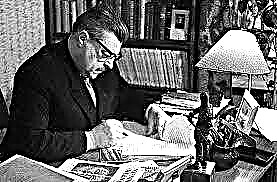
 Glass of water
Glass of water